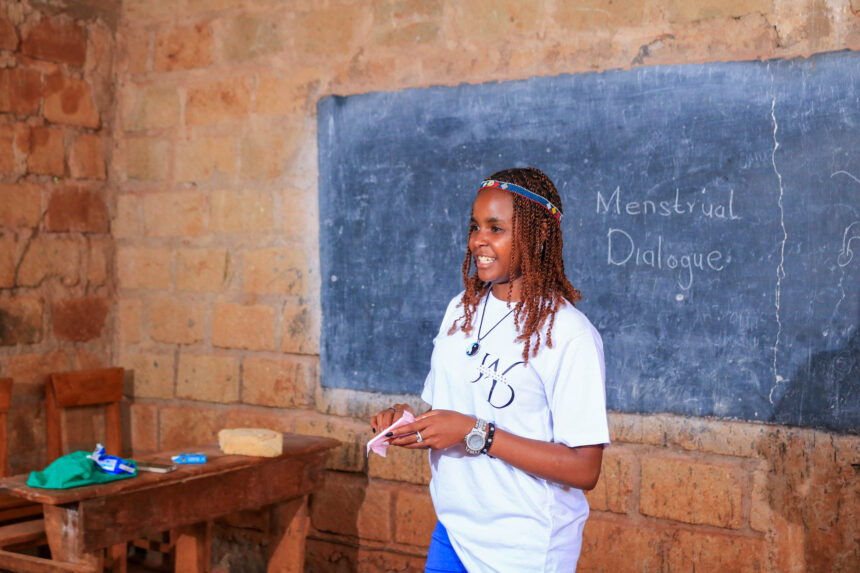Young people in the community have been encouraged to take an active role in promoting menstrual health awareness and education. During a recent menstrual health campaign at Iruma Primary School, Chuka University Deputy Vice Chancellor for Academics, Research, and Student Affairs, Prof. Gilbert Mbaka Nduru, emphasized the importance of peer-led initiatives.
Prof. Nduru noted that young people are more effective at mentoring their peers and providing information on menstrual hygiene. He stressed that teenagers and young adults are more receptive to messages from their peers, making peer engagement a crucial strategy for improving menstrual health dialogue in society.
“Younger people are understood more by their peers than older persons. There is common understanding between age groups, which can significantly enhance menstrual health dialogue and awareness in the community,” Prof. Nduru said.
Joy Karendi, founder and CEO of the WazaDada Initiative, highlighted the challenges girls face in accessing information and affordable menstrual products. She pointed out that many girls lack proper guidance on menstrual hygiene management, which can lead to severe consequences, including engaging in transactional sex to afford sanitary products.
Through the WazaDada Initiative, Ms Karendi has mobilized resources and stakeholders to improve menstrual hygiene management and provide essential services to school-going girls and boys in Tharaka Nithi County. The initiative also distributes dignity kits and actively involves boys in the conversation to foster a more supportive environment for girls.
“WazaDada Initiative brings relevant stakeholders together to create awareness on menstrual health and gives back to the community by providing dignity kits to both girls and boys. We are committed to involving boys in the conversation as a way of empowering them to be responsible and mindful of the girls,” she said.
Ms Karendi cited a lack of adequate guidance on menstrual hygiene management as a significant issue, noting that up to 65% of women and girls in Kenya cannot afford sanitary pads. A Ministry of Health survey from 2016 found that 54% of Kenyan girls face challenges accessing menstrual health products, and 22% of school-going girls purchase their own sanitary products.
Chuka Municipality Chairman Gitonga Mutani called for increased stakeholder engagement in menstrual health campaigns. He assured that the county government is working towards better coordination among departments to ensure the consistent supply of sanitary pads to schools.
“There have been programs by the government to offer sanitary pads to schools despite challenges in resources. The government is in the process of harmonizing all key offices involved to ensure these products reach all schools,” Mutani noted.
The Menstrual Hygiene Management Policy 2019-2030 mandates the County Department of Health to include a dedicated budget for menstrual health management in the County Integrated Development Plan. It also ensures the provision of facilities, services, and products in learning institutions, workplaces, and public spaces.
Additionally, the Basic Education (Amendment) Act No. 17 of 2017 requires the government to provide free, sufficient, and quality sanitary towels to every girl in public basic education institutions who has reached puberty.







